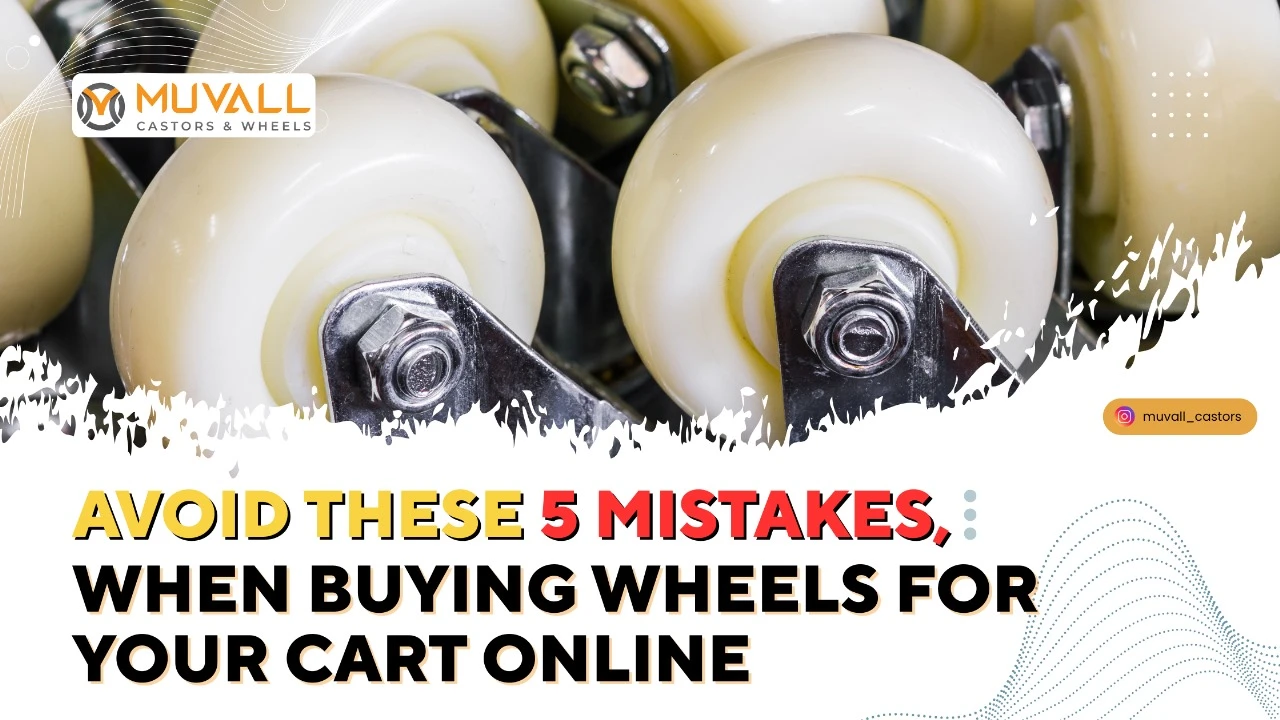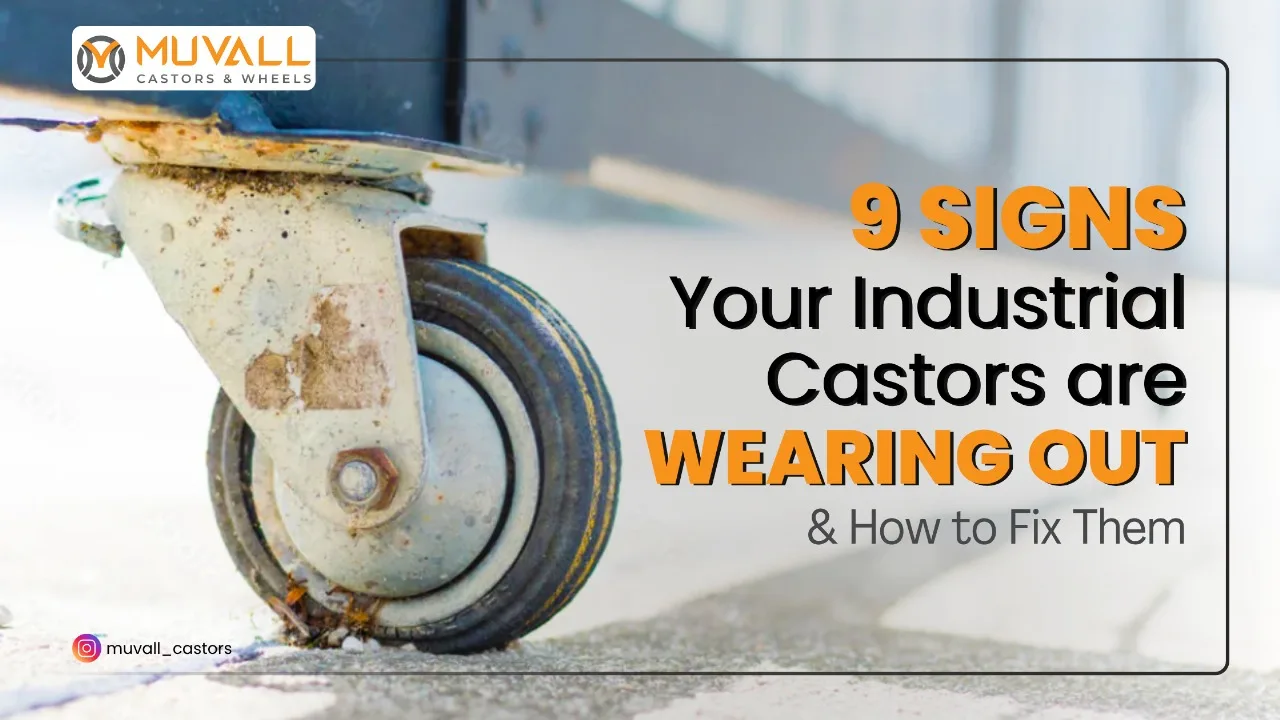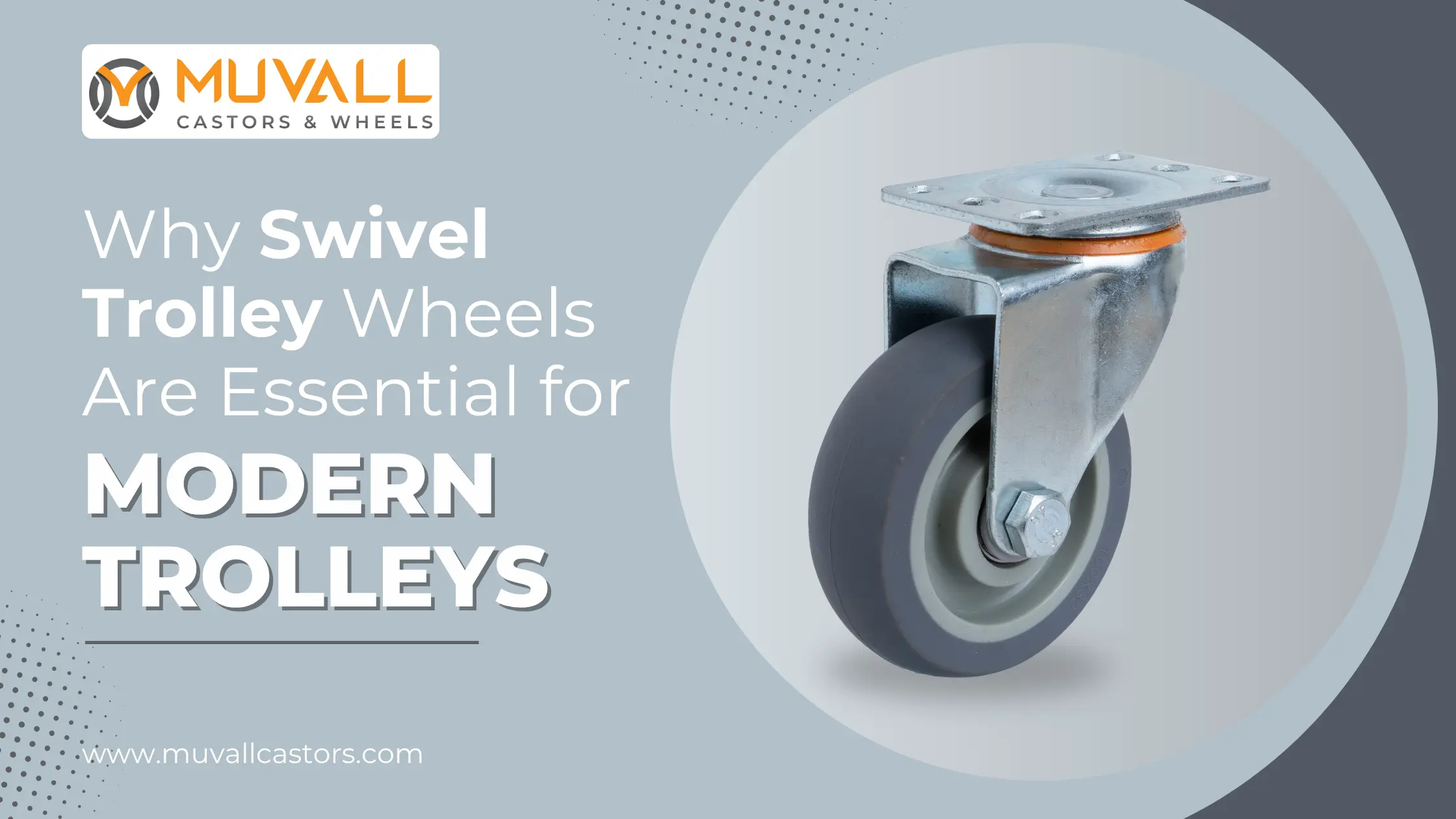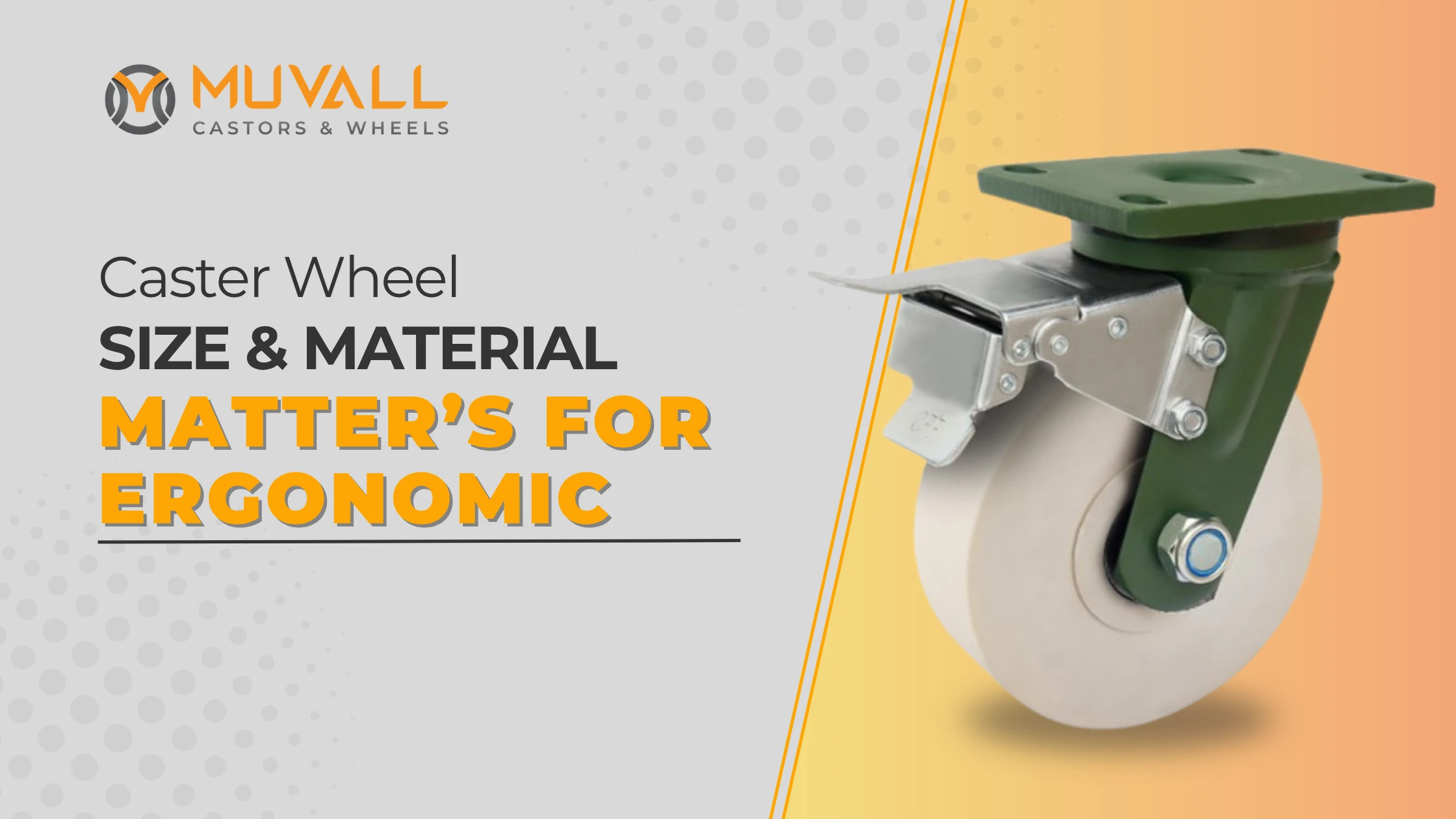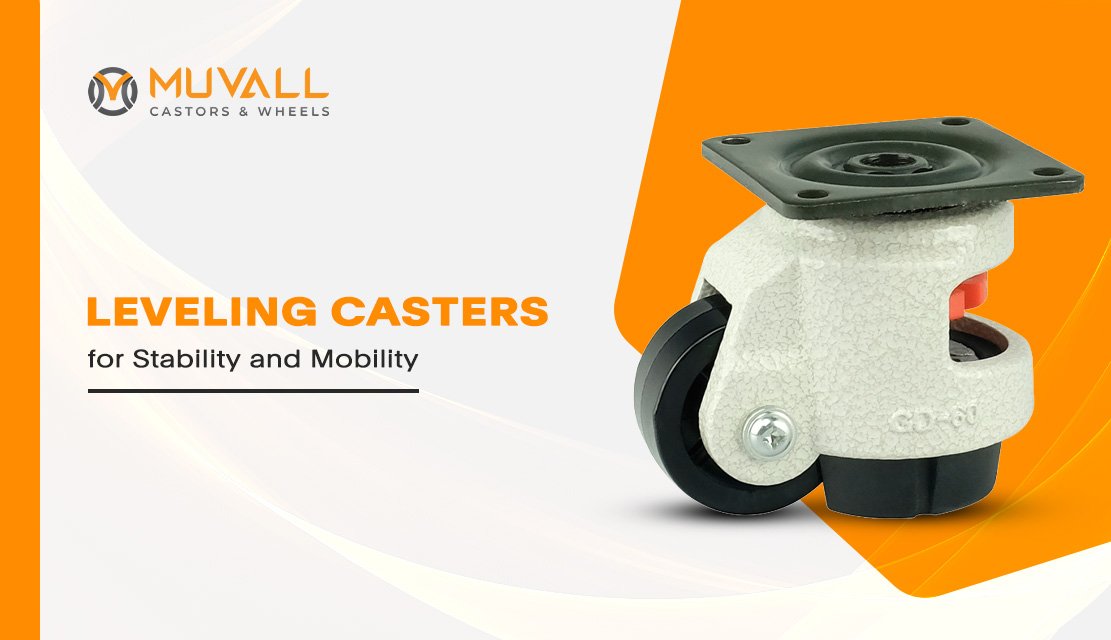Introduction
Buying wheels for cart online sounds simple — search, click, and order. But in reality, the process can be tricky, especially if you need them for industrial or commercial use. The wrong choice can mean higher costs, poor performance, and wasted time.
Over the years, we’ve spoken to hundreds of buyers who purchased wheels for cart online, and the same mistakes keep showing up. This guide will help you avoid those pitfalls, save money, and get the right product the first time.
Mistake 1: Relying Solely on Amazon for Industrial Wheels
When you search for wheels for cart online, Amazon often tops the results. While it’s a convenient option with plenty of listings, it’s not always the best for serious buyers.
Advantages of Amazon:
- Wide variety of options.
- Easy to compare basic specifications.
- Ideal for one-time or small-quantity purchases where you don’t want to spend time talking to multiple vendors.
Risks and Limitations:
- Parameters are often generic, not tailored to industrial needs.
- Prices are usually higher due to platform commissions.
- Most sellers in India are neither manufacturers nor wholesalers.
- Quality variation can be huge, and brand credibility is not always clear.
Pro Tip: If you are a bulk buyer or have specific requirements, Amazon should be your last resort, not your first.
Mistake 2: Assuming Indiamart Will Give You the Best Deal
Indiamart is a large B2B platform and a great place to discover companies that sell wheels for cart. But many buyers quickly feel overwhelmed.
What Works Well:
- Helps identify multiple suppliers quickly.
- Access to companies that are active in B2B sales.
Challenges:
- Limited product information online.
- You’ll get calls from too many sellers after enquiring, often without a clear way to compare them.
- A low-quality supplier and a reputable manufacturer may quote similar prices — making it hard to judge value.
- Quality and reliability are impossible to confirm from listings alone.
At Muvall, we hear frequent complaints from buyers who faced “supplier fatigue” on Indiamart — too many calls, no clear way to filter, and no real hierarchy of expertise.
Pro Tip: Use Indiamart for supplier discovery, but do your homework after shortlisting. Request detailed specs, check for past clients, and insist on technical data sheets.
Mistake 3: Not Exploring Newer Industry-Focused Platforms
Platforms like Industry buying are now focusing on industrial products and are starting to list sellers offering wheels for cart. Muvall Castors is also listed here to reach serious industrial buyers.
The Upside:
- Targeted towards industrial requirements.
- Cleaner product categorization.
The Limitation:
- Still early-stage — fewer sellers compared to mature platforms.
- Range of options is limited for certain categories.
Pro Tip: Keep these platforms on your radar as they grow. They may offer better B2B-focused search experiences than Amazon or Justdial.
Mistake 4: Treating Justdial as a Reliable Source for Bulk Orders
Justdial is primarily retail-focused, which means fewer genuine wholesalers or manufacturers list there.
Where It Works: Finding small, local suppliers.
Where It Fails:
- Limited presence of large-scale suppliers.
- Difficult to verify quality and capacity for industrial supply.
Pro Tip: For large orders, skip Justdial. For small urgent needs from local vendors, it can be a quick fix.
Mistake 5: Not Going Direct to Manufacturers and Wholesalers
The biggest issue across all online aggregator platforms is the lack of standardization in product listings and the absence of established brands in the wheels for cart category.
If you’re a bulk buyer, your best bet is often to:
- Search for suppliers’ direct websites — serious manufacturers and wholesalers usually maintain an updated site with detailed product catalogs.
- Shortlist based on product details, technical specifications, and available certifications.
- Reach out to 4–5 companies in parallel to maximize your chances of getting quick responses.
Challenges:
- Some companies are slow to respond — replies may take 4–5 days, or you may not hear back at all.
Pro Tip:
- Use Google My Business to find local vendors and check reviews.
- Speak to suppliers to gauge their expertise, professionalism, and response speed.
- If you’re short on time and need guaranteed quality and prompt service, work directly with established wholesalers and manufacturers like Muvall Castors — we focus on transparency, high product standards, and quick turnarounds.
Also Read: PU Caster Wheel: Why Use It in Industrial Applications?
Final Thoughts
Buying wheels for cart online can save you time and money, but only if you avoid the common mistakes that trap many buyers. Start with the right platform for your needs, do your homework, and don’t be afraid to reach out directly to reputable manufacturers.
If you want expert guidance in choosing the right wheels for your specific application, our team at Muvall Castors Pvt. Ltd. is here to help — ensuring you get the best balance of quality, price, and service

